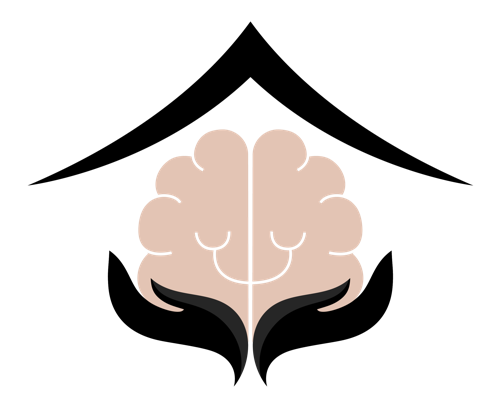Attention Deficit Hyperactivity Disorder (ADHD) is a neurodevelopmental condition that affects both children and adults. It can manifest through symptoms like inattention, hyperactivity, and impulsiveness. These symptoms can significantly impact daily life, work, and relationships. If you or a loved one suspects ADHD, taking an ADHD test in Miami, Florida, is an essential step toward understanding and managing the condition.
Understanding the ADHD Test in Miami, Florida
Before diving into the preparation process, it’s essential to understand what an ADHD test entails. ADHD testing is not a single test but rather a comprehensive evaluation. This evaluation includes multiple components, such as:
- Clinical Interview: A detailed discussion with a healthcare provider. This interview explores your symptoms, medical history, and family background.
- Behavioral Assessments: Questionnaires or rating scales are completed by you and possibly by people who know you well. These assessments evaluate your behavior in different settings.
- Cognitive Tests: Standardized tests assess your attention span, memory, problem-solving skills, and other mental functions.
- Physical Examination: A physical exam helps rule out and eliminate other medical conditions that could create similar symptoms.
- Review of Past Records: Your healthcare provider may review past academic or work records. This helps identify patterns consistent with ADHD.
Understanding these components will help you prepare mentally and emotionally for the process. Knowing what to anticipate can reduce anxiety and make the experience smoother.
Key Considerations Before Your ADHD Test
Choose the Right Healthcare Provider
The first and perhaps most crucial step in preparing for your ADHD test is choosing the right healthcare provider. In Miami, Florida, several professionals can conduct ADHD evaluations. These include psychologists, psychiatrists, neurologists, and pediatricians. Therefore, it’s crucial to select someone with experience in diagnosing and treating ADHD.
Moreover, look for a provider who specializes in ADHD and has a strong reputation in the community. You can seek recommendations from your regular physician, check online reviews, or consult local ADHD support groups. Ultimately, a qualified and experienced provider will carry out a meticulous evaluation and provide you with a precise diagnosis and treatment plan.
Gather Relevant Information
Before your appointment, gather all relevant information that might be useful during the evaluation. This includes:
- Medical Records: Bring any records of past medical conditions, treatments, or medications.
- Academic or Work Records: If you’re an adult, bring copies of your school transcripts, report cards, or work performance evaluations. These can help your provider identify patterns related to attention and behavior over time.
- Family History: ADHD often runs in families, so being aware of your family’s medical history can be beneficial. Share any information about relatives who have received a diagnosis of ADHD or other mental health disorders.
- List of Symptoms: Write down the symptoms you’ve noticed. Include how long you’ve had them and how they affect your daily life. Be specific about situations where your symptoms are most noticeable.
Gathering this information will help your healthcare provider gain a comprehensive understanding of your condition. It will also make the evaluation more efficient and accurate.
Prepare Emotionally and Mentally
Taking an ADHD test in Miami, Florida, can be an emotional experience, especially if you’ve struggled with symptoms for a long time without understanding why. Furthermore, it’s natural to feel anxious or apprehensive about the process. To prepare emotionally and mentally, consider the following:
- Educate Yourself: Learn more about ADHD, its symptoms, and the testing process. Understanding what ADHD is and how it affects people can help you feel more prepared and less anxious.
- Practice Relaxation Techniques: If you’re feeling nervous, practice relaxation methods like deep breathing, butterfly hugs, meditation, or yoga before your appointment. These techniques can help calm your mind and body.
- Seek Support: Talk to a friend about your sentiments and concerns. Whether it’s a friend, family member, or therapist, having support can make a big difference.
Preparing emotionally and mentally ensures that you approach the test with a clear and open mind. This mindset allows you to engage fully in the process.
Best Practices During Your ADHD Test
Be Honest and Open
During your ADHD test, it’s crucial to be as honest and open as possible. Therefore, your healthcare provider needs accurate information to make a correct diagnosis. Don’t downplay or exaggerate your symptoms. Instead, describe your experiences truthfully, even if they are difficult to talk about.
Remember that the goal of the test is to understand your challenges and how they affect your life. Consequently, the more honest you are, the better your provider can help you.
Ask Questions
If you don’t understand something during the evaluation, don’t hesitate to ask questions. Whether it’s about the testing process, the meaning of a specific question, or the implications of your symptoms, asking questions can help clarify your understanding and reduce anxiety.
Furthermore, it’s essential to ask about the next steps after the evaluation. Find out when you’ll receive the results, how they will be communicated, and what treatment options are available if you are diagnosed with ADHD.
Stay Calm and Focused
The evaluation may include cognitive tests that require concentration and attention. Therefore, try to stay calm and focused during these tests. If you find it challenging to concentrate, Take a moment to breathe or request a brief pause if needed.
Remember that the tests are designed to assess your cognitive function. It’s okay if you find some tasks difficult. Hence, do your best, but don’t stress if you struggle with certain parts of the evaluation.
Post-Test Considerations
Review Your Results
After your ADHD test, your healthcare provider will review the results with you. This is a crucial step in understanding your diagnosis and planning the next steps. Therefore, be sure to ask for a detailed explanation of the results and what they mean for your treatment options.
If you have ADHD, your healthcare provider will discuss potential treatment plans. These plans may include medication, therapy, lifestyle changes, or a combination of these approaches.
Consider a Second Opinion
In addition, if you have concerns about your diagnosis or the recommended treatment plan, don’t hesitate to seek a second opinion. ADHD is a complex condition, and it’s essential to feel confident in your diagnosis and treatment. Furthermore, a second opinion can provide additional insights and help you make informed decisions about your care.
Engage in Follow-Up Care
Lastly, if diagnosed with ADHD, follow-up care is vital. So, regular appointments with your healthcare provider, following treatment plans, and monitoring your symptoms will ensure that your condition is managed effectively. Additionally, consider joining local ADHD support groups in Miami, Florida. These groups provide invaluable guidance and resources as you navigate your diagnosis and treatment.
Conclusion
In conclusion, preparing for your ADHD test in Miami, Florida, involves careful consideration of several factors. Therefore, by following the best practices, you can approach the evaluation with confidence and clarity. This preparation ensures an accurate diagnosis and an effective treatment plan. Remember, ADHD is a manageable condition. With the proper support and care, you can lead a fulfilling and successful life.
Sp, are you ready to take the next step? Contact us to schedule your ADHD screening test and get started on your path to better understanding and managing your condition.



